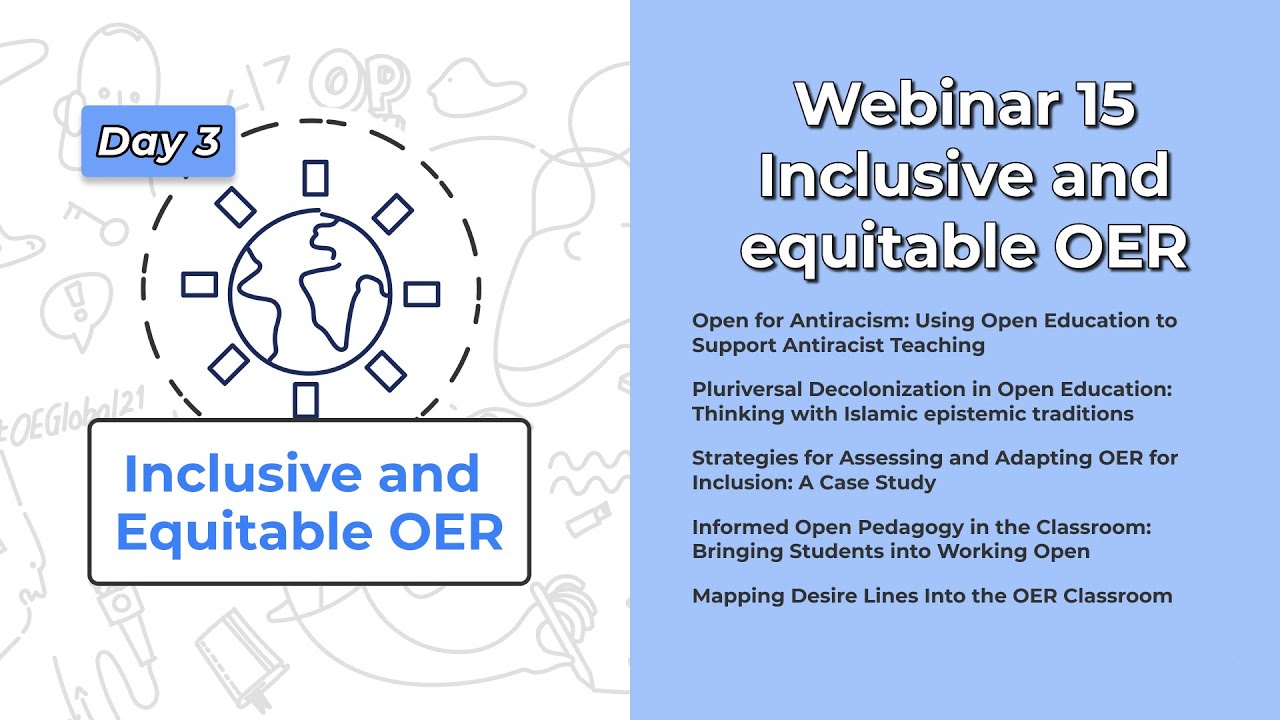Suzanne Wakim (Butte Community College), Rachel Arteaga (Butte Community College), Mandeep Grewal (Butte Community College)
The lack of representation in educational resources of all types has been an ongoing concern. This session will discuss strategies that can be used to build more inclusive resources that mirror our student populations and experiences.
We will share a framework for reviewing Inclusion, Diversity and Equity, and Anti-Racism (IDEA) in Open Educational Resources. Though the framework can, to a certain extent, walk you through what to assess, it is best to have a background in the concepts of IDEA. In other words, knowledge of and training on equity, cultural awareness, inclusion, etc. are foundational to this process.
This framework includes consideration for representing all groups, such as LGBTQIA, people with disabilities, people from various races, ethnicities, and cultures, students from low-income backgrounds, as well as any other historically underrepresented groups.
Even with training, we will always have unidentified blindspots. This can be mitigated by asking individuals from diverse backgrounds to complete a survey assessing the inclusivity of the textbook. We will share a sample survey used to evaluate our Human Biology textbook.
Finally, we will share our journey through this process with our textbook. This textbook, like many others, did not fully and appropriately represent our student populations. We also found that some of these gaps resulted in misleading information. We made numerous small changes to the book including using names from different cultures in the case studies; using “they” pronouns, and replacing the images to more accurately represent the diversity of our students. We also included the work of scientists from a broader representational group. And, we added a more current understanding of biological sex and reproductive strategies to counter hetero normative assumptions. These changes make the textbook more inclusive and give students a more accurate understanding of the discipline.
Extended abstract: OE_Global_2021_paper_34.pdf 📄
Webinar Information
This presentation is part of Webinar 15 Inclusive and equitable OER taking place in your local time → .
Webinar Access (registered conference participants only):
![]()
![]() Go to Webinar 15
Go to Webinar 15
UNESCO OER Action Area: Inclusive and equitable OER
Language: EnglishSee the other presentations that take place in this webinar.
Presentation Recording
Participate
Before the webinar the authors will be asked to reply below with links to their presentation materials, related videos, and other relevant links, as well as prompts for discussion here.
For anyone that missed the live session, an archive will be posted here as soon as possible.
Conference participants are urged also to reply below with questions, comments for the presenters or to share related resources.
